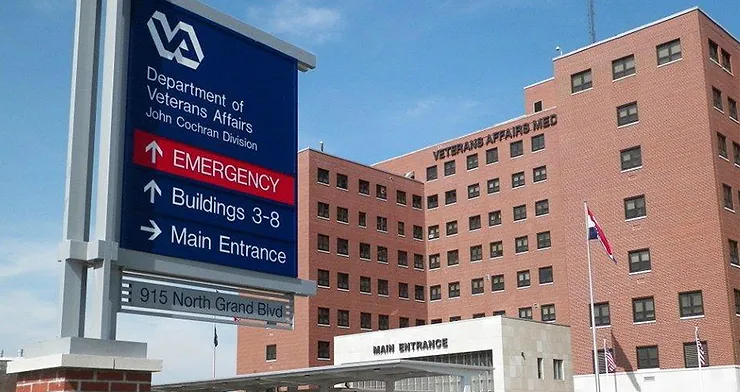(This guest essay for Newsday is by Joseph Riotta, a telecommunications industry sales director and VHPI advisory board member whose son Joey is an Air Force veteran.)
I am an American by choice, having emigrated from Argentina in 1974. I settled on Long Island, married, and raised a family here, including my beloved son Joey, who proudly served four years in the U.S. Air Force.
Six years ago, Joey was diagnosed with schizophrenia while serving in the Air Force. Thanks to excellent care delivered by the Veterans Health Administration at medical centers in Brooklyn, Manhattan and Northport, run by the Department of Veterans Affairs, my son has been able to live largely independently in an environment where he and others are safe.
Imagine my shock and dismay when I learned that VA Secretary Denis McDonough wants to shut down many VA facilities in New York State and around the country. A plan he released in March, which he continues to promote despite congressional opposition, would send millions of patients like my son to private sector mental health professionals and hospitals that notoriously neglect the mentally ill.
McDonough’s closure recommendations were supposed to be assessed by a nine-member Asset and Infrastructure Review (AIR) commission tasked with determining which VA facilities to shutter or improve. He based his recommendations on consultants’ data the VA’s own inspector general dismissed as flawed and outdated. McDonough promised to replace some facilities with new hospitals and clinics. But with no guarantee of the billions needed to rebuild closed facilities, the plan would mean that vulnerable veterans like my son would have to depend on private sector providers for their care. One RAND study of New York private sector health care providers reported that only 2% are competent to deal with veterans’ complex mental and physical health care needs. Throughout the nation, severe shortages of mental health and primary care providers have crippled the nation’s ability to care for veterans or anyone else.
That’s why 12 U.S. senators tried to end the AIR process in June by refusing to hold hearings on its commission nominees, and why Congress passed an amendment defunding the commission.
Sadly, McDonough refused to accept this verdict of no confidence and is still planning to close VA facilities — without congressional input.
Recent personal experience has convinced me that the secretary is going down the wrong path. In February, my son had a serious schizophrenic episode. Instead of taking Joey to the VA hospital in Northport, an ambulance took him to one of the private sector hospitals that would replace the VA under McDonough’s plan. Joey was treated callously by staff and my wife and I were barred from visiting him for five days, during which his condition deteriorated.
My experience is hardly unique. While the VHA consistently delivers superior mental health care to veterans, studies confirm that in the private sector almost half of those suffering from schizophrenia or bi-polar disorder go untreated. In New York, the vast majority of counties suffer severe shortages of mental health providers. It’s almost impossible to get a patient like Joey into a program that delivers care for both severe mental illness and substance abuse. This is true even if you are, like my family, privileged enough to afford the cost of the program.
I urge the VA secretary to reverse course. As the COVID-19 pandemic continues to overburden American health care, now is not the time to shut down VA facilities. Just the opposite. The VA should be expanded to help more veterans, their families, and the communities that the American health care system too often underserves.




